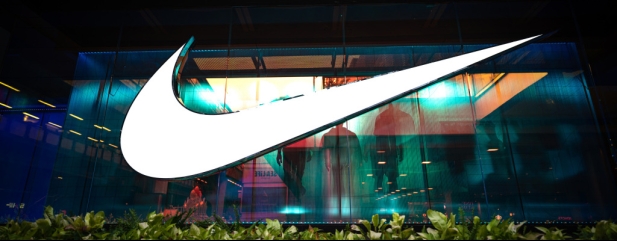Archived article
Please note that tax, investment, pension and ISA rules can change and the information and any views contained in this article may now be inaccurate.
Just do it: why you should buy Nike shares right now

A 30% share price drop at Nike (NKE:NYSE) from 2021’s all-time peak of $177.5 presents a buying opportunity for long-term investors prepared to look past present challenges and pay up for a quality innovator with years of growth ahead of it.
Near-term challenges for the world’s largest sportswear company include elevated freight and logistics costs and an inflation-induced consumer spending squeeze.
Nevertheless, Shares believes the sneakers-to-soccer balls behemoth will remain the world’s preferred sportswear brand for years to come given its strong brand, scale and digital savvy.
Catalysts for the share price over the months ahead include evidence Nike is successfully reducing excess inventories without too much recourse to margin-eroding discounts and a return to growth in China helped by a release from lockdown restrictions in this vast market for consumption.
WHY NIKE RIGHT NOW?
The American sportswear giant famed for its iconic swoosh logo needs no introduction and for this very reason, investors are familiar with its qualities and the shares aren’t cheap in absolute terms. According to Stockopedia, Nike trades on 37.7 times forecast earnings for the year to May 2023 falling to 29.8 times based on 2024 estimates.
Yet this rating actually represents a massive discount to 2020’s peak price to earnings ratio of 80 times. And the recent de-rating has created a buying opportunity in the Oregon-based athletic apparel leader, whose sustained investments in product innovation, supply chain speed and digital have created competitive advantages and a wide economic moat that should unlock a multi-year period of above-average growth.
Nike is also a copiously cash-generative company that makes higher returns on the money it spends than rivals including Adidas (ADS:ETR) and has increased the dividend for 20 consecutive years.
SPRINTING AHEAD
While inflation has stirred up headwinds, Nike’s formidable brand strength confers the ability to raise prices on its aspirational footwear – the company frequently releases new styles of ‘must-have’ running shoes and trainers and is the brand of choice of many elite athletes – which it enables it to protect its margins.
The NIKE Direct business, which gives Nike greater control over the brand and margins and forms a key plank of the long-run strategy, is in growth with sales dashing 14% higher at constant currency to $5.1 billion in the first quarter ended 31 August 2022. And while there is competition in China from homegrown competitors including Anta and Li Ning, neither brand has the international cache of Nike, which offers investors a great way to play trends towards health and fitness, the casualisation of fashion and the growth in athleisure.
Important information:
These articles are provided by Shares magazine which is published by AJ Bell Media, a part of AJ Bell. Shares is not written by AJ Bell.
Shares is provided for your general information and use and is not a personal recommendation to invest. It is not intended to be relied upon by you in making or not making any investment decisions. The investments referred to in these articles will not be suitable for all investors. If in doubt please seek appropriate independent financial advice.
Investors acting on the information in these articles do so at their own risk and AJ Bell Media and its staff do not accept liability for losses suffered by investors as a result of their investment decisions.
Issue contents
Feature
Great Ideas
Investment Trusts
News
- Big moves in UK oil sector with crude in the doldrums despite OPEC cuts
- Why Yu Group’s shares have sparked up 87% in six months
- The great CEO merry-go-round: Vodafone chief executive is the latest to go
- Which Cineworld assets could be on the block with Vue circling?
- How banks are poised for major changes under proposed ‘Big Bang 2.0’ reforms
- Live Nation shares remain in the doldrums despite ticket surge
 magazine
magazine









